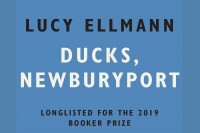
'Authenticity is the key' - budding crime writers on getting the science right
bbc.co.uk – Sunday January 5, 2020

Whether it is Ian Rankin's world-weary Inspector Rebus or the windswept murder mysteries of BBC Scotland's Shetland, home-grown crime fiction is big business.
But with fans more clued-up than ever, is getting the forensic science right in novels and television series important?
Dundee University seems to think so.
The university launched its MLitt in Crime Writing and Forensic Investigation in 2017, the first course of its kind in the UK.
With Scottish crime writers more popular than ever and the continued success of literary festivals like Stirling's Bloody Scotland and Aberdeen's Granite Noir, many fans are not just content to know "whodunnit", but how it was done, too.

Mango Publishing Acquires Yellow Pear Press
publishersweekly.com – Friday January 3, 2020

Mango Publishing, a Miami-based independent house focused on a diverse list of voices and topics, has acquired Yellow Pear Press, which also includes Bonhomie Press, a fiction and memoir imprint.
Founded in 2015 in San Francisco, Yellow Pear Press specializes in lifestyle and regional titles as well as notecards and journals. The YPP list works well with that of Mango Publishing, which publishes across an eclectic range of topics including LGBTQ issues, feminism, health and self-help, fiction, and children’s and young adult books.

Debut fiction by women shook up the Indian literary scene in 2019
livemint.com – Monday December 30, 2019

- First-time women writers dominated the literary fiction landscape in India this year
- They won prizes, appeared on shortlists, and published thematically daring books challenging patriarchal assumptions and political realities
It may seem superfluous to fuss about literary fiction and its fate in the fractious political climate Indians are living in, but the genre has, since its inception, held a mirror to social change, capturing truths that slip through the cracks of hardwired non-fiction. This year, in particular, has witnessed the triumph of women debut novelists. A series of powerful books by them have disrupted the familiar landscape of English-language publishing in India, usually filled with established names and stars. Thematically daring, crafted with precision and forging distinctive linguistic registers, these books help us experience our political and social realities more keenly. They also capture the collective desires and despairs that complicate our engagement with the India we are living in at the moment.

New Literary Agent Listing: Katherine Wessbecher
firstwriter.com – Monday December 30, 2019

Katherine is looking for children’s books (picture books through YA), upmarket adult fiction, and narrative nonfiction for all ages.
How Many Characters?
By G. Miki Hayden
Instructor at Writer's Digest University online and private writing coach
firstwriter.com – Monday December 30, 2019
I never really thought about how many characters might be best in a novel because my characters have always had real and necessary roles, and that’s what I’ve stuck by. But recently I had a student whose novel is off to the races with 10 different third-person point of view characters and about an equal number of secondary characters. The student was struggling with whether that was optimal or whether she needed to ditch the whole project. Hey, wait, never toss a project until you’ve pondered the various implications.

The 2010s were supposed to bring the ebook revolution. It never quite came.
vox.com – Monday December 23, 2019

At the beginning of the 2010s, the world seemed to be poised for an ebook revolution.
The Amazon Kindle, which was introduced in 2007, effectively mainstreamed ebooks. By 2010, it was clear that ebooks weren’t just a passing fad, but were here to stay. They appeared poised to disrupt the publishing industry on a fundamental level. Analysts confidently predicted that millennials would embrace ebooks with open arms and abandon print books, that ebook sales would keep rising to take up more and more market share, that the price of ebooks would continue to fall, and that publishing would be forever changed.
Instead, at the other end of the decade, ebook sales seem to have stabilized at around 20 percent of total book sales, with print sales making up the remaining 80 percent. “Five or 10 years ago,” says Andrew Albanese, a senior writer at trade magazine Publishers Weekly and the author of The Battle of $9.99, “you would have thought those numbers would have been reversed.”
And in part, Albanese tells Vox in a phone interview, that’s because the digital natives of Gen Z and the millennial generation have very little interest in buying ebooks. “They’re glued to their phones, they love social media, but when it comes to reading a book, they want John Green in print,” he says. The people who are actually buying ebooks? Mostly boomers. “Older readers are glued to their e-readers,” says Albanese. “They don’t have to go to the bookstore. They can make the font bigger. It’s convenient.”
Ebooks aren’t only selling less than everyone predicted they would at the beginning of the decade. They also cost more than everyone predicted they would — and consistently, they cost more than their print equivalents. On Amazon as I’m writing this, a copy of Sally Rooney’s Normal People costs $12.99 as an ebook, but only $11.48 as a hardcover. And increasingly, such disparities aren’t an exception. They’re the rule.
So what happened? How did the apparently inevitable ebook revolution fail to come to pass?

The kindness of strangers has saved our publishers
standard.co.uk – Friday December 20, 2019

One of the reasons my husband Sam Jordison and I set up Galley Beggar Press, our small independent publishing company, in 2012 was that it would allow us to take risks on publishing the books we loved.
I’m happy to say that it worked. We haven’t put out many books in the past seven years, but the ones we have, have had a big effect. They’ve won prestigious literary prizes, been translated into dozens of languages and sold around the world. And they’ve also, luckily for us, sold enough copies here in the UK to help keep our little company going.
This year was an especially fortunate one. Our title Ducks, Newburyport by Lucy Ellmann was shortlisted for The Booker Prize. It’s a big deal — and it meant that Lucy’s masterpiece, which we loved so much, was going to find more readers.

End of an era for book publisher Penguin
news.sky.com – Wednesday December 18, 2019

It is the end of an era for one of the most famous names in book publishing.
Penguin is being sold by Pearson, its owner for the last half-century, as the company focuses its activities exclusively on education.
Pearson today announced that it was selling its remaining stake in Penguin Random House, the book publishing joint venture it formed six years ago with Bertelsmann, the German media group.
The company originally owned 47% of Penguin Random House when the joint venture was set up in 2013.
It sold a 22% stake in the business to Bertelsmann, its joint venture partner, for $1bn in July 2017.
New Magazine Listing
firstwriter.com – Tuesday December 17, 2019
Publishes: Fiction; Nonfiction; Poetry; Scripts;
Areas include: Criticism; Drama; Translations;
Markets: Adult;
Preferred styles: Literary
Submit 3-5 poems, fiction, criticism, or creative nonfiction up to 4,000 words, drama up to 15 pages, or translations, with 60-word bio in the third person. Send as attachment by email. See website for full guidelines.

3 books to help you become a better writer in 2020
redlandsdailyfacts.com – Sunday December 15, 2019

The New Year will soon be upon us and as this is seen as a time of rebirth and rejuvenation, many people use the New Year to embark on a journey of self-improvement and self-reflection. Many people take this time to pick up a new hobby, create and maintain better habits, and maybe improve one’s lot in life.
One skill that I personally try to improve upon is writing. Writing is a necessary skill and a refresher course on writing is apt to keep those skills sharp. It’s also helpful so that in the middle of an important writing session, you don’t have to stop and look up whether it’s light bulb or light-bulb (lightbulb), or where to put the apostrophe in the plural of Adams ( … this one maybe look up).
Reading is one of the best ways to improve your writing, and reading a book about improving writing should improve things even more so. Like three fold. (This is about improving writing, not math skills. That’s for next time.)
Get the free newsletter | Submit a news item or article | Get Writers' News for your website





